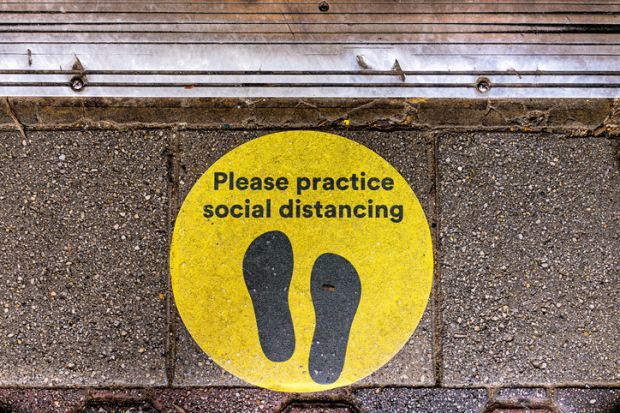It may have felt for a while, in the early stages of the lockdown, that we were all in this pandemic together. However, since the restrictions have begun to be eased, it is clear that some people take the ongoing need for social distancing and the wearing of face masks a lot more seriously than others.
Last week’s suspension of a group of students at Syracuse University, in New York State, for refusing to follow the rules on quarantining is a reminder that this is about to become a serious issue for many more universities as the new term beckons. A Universities UK study published in June found that 97 per cent of UK higher education institutions plan to offer some teaching on campus from September, and 87 per cent intend to offer in-person social opportunities to students, including outside events and sporting activities.
As they do so, universities must have the right safety measures in place. But, crucially, they must also respond quickly and effectively to any violations. Failure to act – and to be seen to do so – could ultimately risk legal action, reputational damage and the involvement of the regulator.
At a fundamental level, coronavirus safety measures should be approached like any other health and safety issue. In the UK, institutions have a legal responsibility to protect the health and welfare of their students and staff, and university employees have a legal duty to their colleagues and their students to act reasonably and safely and to follow the rules.
However, the coronavirus presents unique challenges. It is impossible to police an entire campus to ensure that everyone is following the rules at all times. The experience of other sectors – such as transport and retail – has already shown the erratic success of enforcing compliance with restrictions, despite significant efforts.
Moreover, the prominence of the issue is such that many students will be nervous about returning to campus, and instances of rule-breaking may lead to formal complaints. If these are poorly managed – or if institutions are in any way perceived to be apathetic to the safety of the wider community – reputations could suffer, and student and faculty could be within their rights to take legal action or to refer the issue to the regulators. On the more extreme end of the scale, if someone contracted the virus on campus, they could lodge a personal injury claim against the university.
Having a clear code of conduct and an effective disciplinary process, which is followed consistently, will be key to sanctioning rule breakers in a swift and proportionate manner. There are also broader steps universities can take that will help to drive compliance and support their enforcement of the rules.
At all stages, clarity and good communication will be essential. As a first step, universities should build on the most up-to-date advice and guidance to set out a clear policy statement establishing how they will be creating and maintaining a safe campus. From there, they can work to ensure that everyone is informed of the relevant measures, such as by introducing mandatory staff training or compulsory student induction sessions.
Compliance is more likely if students understand why they have to follow the rules. To support this, providers could highlight sections of the student charter requiring observance of a duty of care to fellow students’ health, safety and well-being. Students should also be reminded of the disciplinary procedures they will be subject to if they fail to meet the standard expected. Consulting with stakeholders, such as the students’ union, about appropriate penalties can help to ensure that disciplinary procedures are effective and proportionate in the eyes of students.
Students, staff and the wider community should be shown how they can report any concerns on campus. Here, it may be helpful to specify a dedicated point of contact responsible for consistently advising and responding to any compliance issues raised.
The coming months will be a challenging time of transition, but universities must be ready to show that the responsibility for maintaining a safe environment is not one they take lightly.
Susan Matthews is a principal associate at national law firm Weightmans LLP and helps universities develop strategies to handle student complaints.





